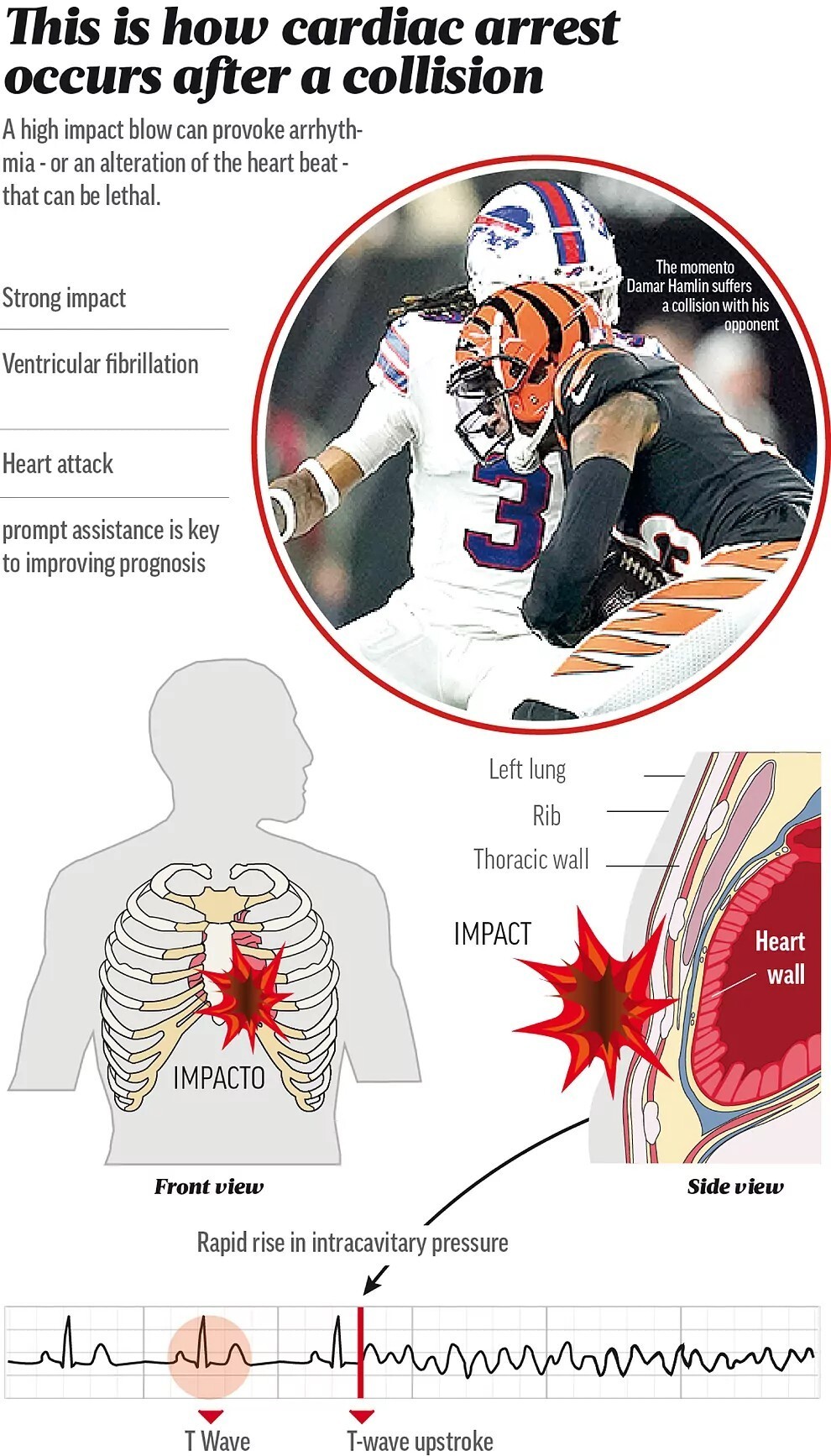Damar Hamlin's heart stopped twice: Can that cause after effects?
Buffalo Bills safety Damar Hamlin collapsed on the field during Monday's game against the Cincinnati Bengals, after suffering a cardiac arrest, more specifically a condition known as commotio cordis.
This is caused when severe impact or trauma to the chest, which is common in contact sports, results in irregular heart rhythm, and it often leads to sudden death.
Damar Hamlin: Buffalo & Cincinnati fans unite, hold vigil in support of the safety
After being resuscitated twice, Hamlin was taken to the hospital where he remains in critical condition.
The incident took place following a routine tackle on Bengals receiver Tee Higgins. Hamlin managed to get on his feet before immediately falling down, as paramedics and doctors rushed into the field to provide him with medical support.
Why did Damar Hamlin suffer a heart attack?
The Chairman of the Department of Medicine at Newark-Beth Israel Medical Center, Dr. Marc Cohen, told the New York Post that the collision may have come at the time when the heart is most vulnerable.
"That hit had to occur at a certain point in time that was only five milliseconds long," said Dr. Cohen.
"If that hit occurred one millisecond after or before, this may not have happened.
"There is a time in the cycle of the heart where we are at risk.
"If we were to tap the heart, we can cause the heart to go into ventricular fibrillation.
"More likely than not, what happened is he got up and his rhythm became chaotic. That may have taken a few seconds to occur."
"It's very possible that a tremendous amount of adrenaline may be released and that adrenaline triggers the heart to go into a chaotic rhythm, which we call ventricular fibrillation."
Are there side effects to Damar Hamlin's condition?
The biggest concern with commotio cordis is that it is often fatal, but thankfully Hamlin was treated immediately.
In terms of after effects, there usually aren't many because this type of issue tends to happen to young people with no previous heart issue.
Even still, survivors may require an electrocardiogram (ECG or EKG) to check their heart for any rhythm disturbances.
They'll also likely need a doctor's full approval before they are permitted to play any sports again.







Post a Comment